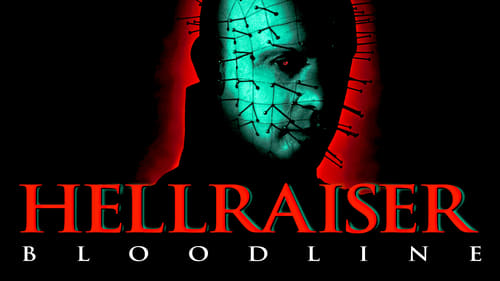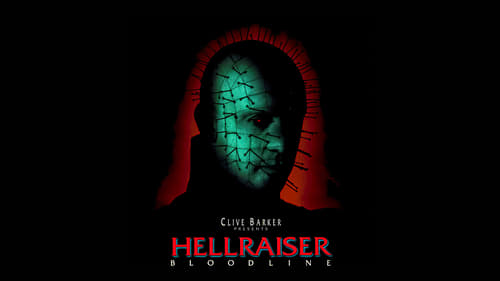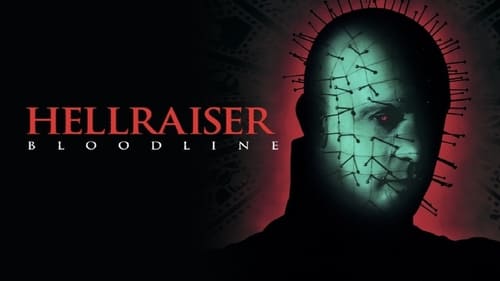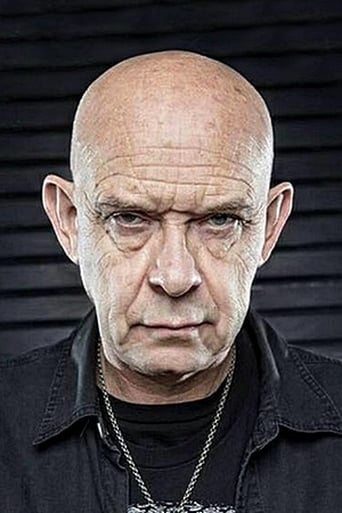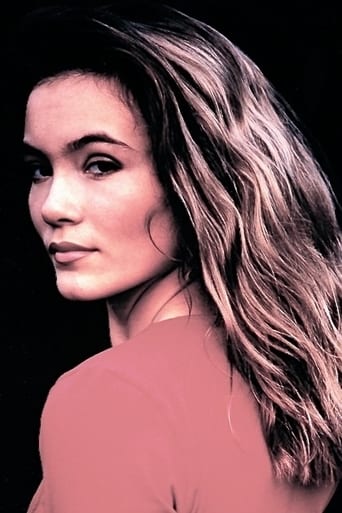paulclaassen
The origin of the box is explained as we go back in time, and I found this info very interesting. (Interesting that the original film never told us where the box came from.) Three stories in one: past, present and future, and all interesting in its own right. Only, why is Pinhead killing innocent people (again) who had nothing to do with the box? He appears to be killing for fun and this fact does not make any sense. The film simply becomes a senseless slasher for the sake of special effects and make-up. There's no suspense or scares - just flat-out gore.
lonchaney20
Following the ludicrous but profitable Hellraiser III, Clive Barker and Pete Atkins sought to restore some dignity to the series, and from their brainstorming sessions emerged one of the franchise's finest screenplays. Barker suggested that Atkins write a family saga set during three eras, and Atkins one-upped him by focusing on three generations of the damned LeMarchand family. On paper it is one of the few truly epic horror films, following three generations of the family that crafted the Lament Configuration, and their centuries long quest to atone for the hell that they've unleashed. Make-up effects artists Kevin Yagher was tapped to direct, and his ambition matched that of Barker and Atkins; with this film they would create the ultimate ending to the saga of LeMarchand's box, and of its most famous demon, Pinhead. Unfortunately it was not to be. The production was not given nearly enough time or money to realize Atkin's story, and while Yagher did his best under the circumstances, his initial edit made the studio very nervous. Simply put, Pinhead was considered the series's cash cow, and he didn't appear in the movie until about 40 minutes in. Soon the film was taken out of Yagher's hands; its linear story was rearranged so that Pinhead appeared in the first act, and several scenes were added or re-shot by an uncredited Joe Chappelle to make sense of the severely truncated mess that Miramax now had on its hands. As the film no longer bore any resemblance to his original conception, Yagher chose to be credited as "Alan Smithee." The final product, though entertaining, is thus an extremely frustrating experience for any die-hard fans of Hellraiser.An interesting wrinkle emerged about ten years after the fact, when a very rough VHS copy of a work-print was leaked onto the internet. Though the film had already been heavily compromised by this point in its production, and (as work-prints tend to do) it features several unfinished special effects, the work-print does feature several scenes which were cut from the theatrical version. A couple fan-edits followed, both of which sought to combine both the theatrical release and the work-print into something more closely resembling the original screenplay. Having already seen the theatrical version a few times, I chose to watch one of these fan composites and compare it to Pete Atkin's script. The version I watched disingenuously refers to itself as a director's cut, but it still features some of the material shot by Chappelle, and several significant gaps remain in the story. Because some important scenes were either never filmed or have never surfaced, several aspects of the first act (set in 17th century France) are actually more confusing here than they are in the theatrical version. By arranging the story chronologically, however, the three generations of LeMarchands (each convincingly played by Bruce Ramsay) can now be appreciated as different progressions of a single character. While this pseudo-director's cut still isn't the lost masterpiece that fans are craving, it did increase my admiration for what the filmmakers were trying to achieve. The idea of an old-fashioned Hell (personified by Valentina Varga as Hell's sultry princess, Angelique) in conflict with the more ordered Hell of Pinhead is rich with possibilities, and it clearly struck a chord with Clive Barker. Though Barker repeatedly disavowed the Hellraiser sequels, he returned to this theme in The Scarlet Gospels (his literary finale to the Hellraiser mythos), and several other images are quoted almost verbatim from Atkin's screenplay - I was particularly struck by how both authors characterized Pinhead's chains as snakes coiled to strike. And even in its abortive form, the film still displays a confident visual sense from first-time director Yagher. Even the film's weakest segment (in which the modern John Merchant's family is held hostage by Pinhead) still features some spectacularly creepy visual flourishes. As the credits roll on either version, one is thus left pining for the movie that could have been. It wouldn't be too much of an exaggeration, I think, to call this film Hellraiser's own Magnificent Ambersons in terms of ambition and compromise.I would be remiss not to mention the film's most controversial section, in which Pinhead and Dr. Paul Merchant match wits aboard a futuristic space station. Outer space is usually regarded as the location in which any horror franchise loses its dignity. While the idea might seem inherently campy, I think the meeting of Hell with the cold void of outer space is inspired. What lets it down here is some lackluster CGI and some annoying concessions to the genre (e.g. characters splitting up to die slasher movie deaths, lame chase sequences, etc.) This potential would be better realized in the Hellraiser-inspired Event Horizon, which is freed from these potential pitfalls, I think, by being a standalone movie. Without the baggage of an iconic boogeyman like Pinhead, it's free to focus more on psychological horror and character development, and thus it sadly plays like a better Hellraiser-in-Space than the real one.Gutted though it may have been, Hellraiser IV proved profitable enough at the box office to pave the way for a seemingly never-ending series of DTV sequels, starting with the still contentious Hellraiser: Inferno.
vengeance20
Upon watching this I wasn't particularly bought. Heard & seen a trailer to see it was in outer space, & I myself, was sort of turned off by it as I don't like Sci-Fi Films & prefer realism over fantasy. But after watching this I actually thought it was really good! Was pleasantly surprised to like it as I dislike Sci-Fis at the best of times, but this was an exception. It proves that Horror & Sci-Fi go well together & it's a genre mix that should be used more often by writers & directors alike!The film starts in space 2124, inside a spaceship were a space crewman is trying to unlock the Lament Configuration via a robot, he successfully does this only to be ambushed by space agent police. This is where the film goes back to the 20th century & explores the origins of the lament configuration & how it became an evil tool/gateway to hell.I found the film at first to be so-so while watching, but go attracted & interested as it picked up & oh boy did it! The blood & graphics where great as always. I also liked the Sci-Fi scenery too! It was attractive & got me into it considering I don't like them. But the graphics were great & the kills were unique.The ending was satisfying as well & the film was short & sweet. Which made it more watchable & a lot better than the previous 3 films in the series.I give this film a 7.5/10 it was really good & watchable, this is coming from a man who dislikes Sc-Fis too, give it a watch! It's great!
blackboxla
I'm certainly in the extreme minority of people who can appreciate the ambition behind Bloodline. Though the film got hacked up and reduced the plot to a mess (as only Dimension and Joe Chappelle could do it!), the multiple story lines stretched over three time periods makes for an interesting take on the Hellraiser mythos. It also features some slick gore and makeup gags, which comes as no surprise considering Kevin Yagher was at the helm (before he was unceremoniously dumped in post-production); A three part anthology spanning five centuries, it explores the origin of the puzzle boxes and the family that created them.The movie worked as an excellent slipcase for the entire series. It gave us a definitive start to the story, wrapped up threads from the earlier movies and gave us a definitive ending.











